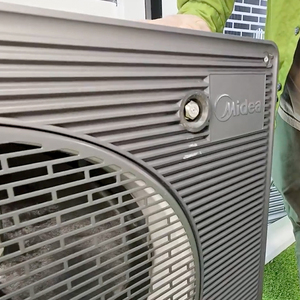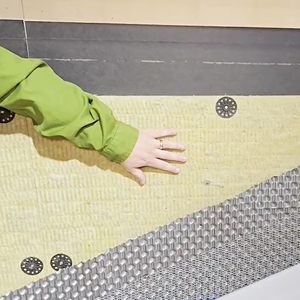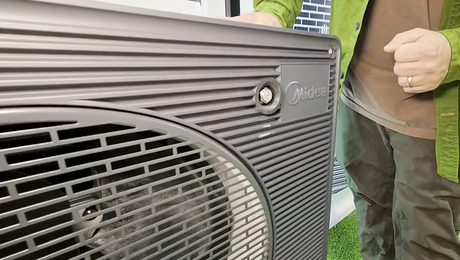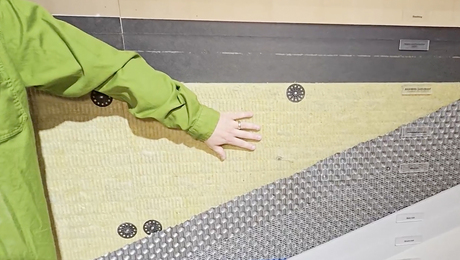BUSTED! A True Story

While researching my new book on in-law units, I heard many stories of units that had been or were illegal, hence my book’s title, In-laws, Outlaws, and Granny Flats. No doubt you’ve heard of similar situations-or perhaps have run afoul of zoning codes at some point during your building career. If so, please share your comments below.
Many homeowners create second units that, though compliant with current building codes, are outlaws (illegal units) because a permit was never issued for construction. Stiff permit fees and red tape are the reasons most often given for not getting a permit from city hall. But I think a case can also be made that our patchwork of zoning codes-many of them enacted in the 1950s or 60s-are badly outdated.
In many cases, homeowners skirt permitting because of a family crisis: An aged parent falls and breaks a hip, a breadwinner loses a job, an adult child moves home because they’re just not cutting it on their own. In such emergencies, even if one is inclined to obey zoning rules, the need to act immediately may be more compelling. Waiting a year while applications work through a bureaucracy just isn’t an option.
Whatever the reasons for not getting a unit permitted, however, owning an outlaw may cost you-financially and psychologically. Consider this example in In-laws:
“I didn’t get a permit because we milled the trees on our property and I didn’t want to pay $2500 so some “expert” could tell me that it was good wood. We had just finished the cabin and installed the kitchen stove when a guy with a hardhat and a clipboard comes walking down the drive. I knew right away what it was about. He stood next to the cabin and said, ‘Do you have an illegal building on this property?’ And I said, ‘You’re looking at it.’
“So I had to go through the rigamarole of permitting after all. Because the cabin was built to code, the county didn’t fine me much but the permitting fees were expensive. In the end, setting things right cost about $10K. So it cost about $30K to build the cabin and about a third more to get it permitted. I wasn’t happy about losing that money. On the other hand, I’m home free now. I’ve got nothing to hide.
“If I want to rent this place, I just put an ad in the paper. If there’s a political dispute in town, I can stand up and speak my mind. Cutting corners and not getting permits is very common around here-a deck here, a little shed there, a room that was storage but now is a bedroom-but not getting a permit makes you feel vulnerable. If your neighbor gets really miffed about your dog barking, they could turn you in.
“Incidentally, it was not a neighbor who called the county-my neighbors are all friends and, besides, I discussed the cabin with them before I built it-but someone in town who had a beef with me. But initially I didn’t know who had turned me in and that climate of suspicion can really be corrosive. In time, though, I got over it and moved on. So in hindsight, it was a valuable lesson.”
Please share your experiences and we’ll get a discussion going.
Create Your Own In-Law!
If you’re interested in second units, please check out my recent book, Outlaws and Granny Flats: Your Guide to Turning One House into Two Homes. The Library Journal named it one of the 10 Best Design Books for 2011. You can also preview In-laws, Outlaws‘ lush professional photos at www.cozydigz.com
If you will be renovating your home (or perhaps creating an in-law suite), there’s no better companion than Renovation 4th Edition, (November, 2012). Its 614 pages, 1,000 photos and 250 detailed illustrations cover home renovation from start to finish and contain lifetimes of practical, field-tested techniques that professional builders shared with me over a 40-year period.
© Michael Litchfield 2012
Fine Homebuilding Recommended Products
Fine Homebuilding receives a commission for items purchased through links on this site, including Amazon Associates and other affiliate advertising programs.

Musings of an Energy Nerd: Toward an Energy-Efficient Home

The New Carbon Architecture: Building to Cool the Climate

All New Kitchen Ideas that Work



























View Comments
I don't at all mind someone looking over my shoulder to ensure things are up to par. I just don't think the codes were ever initially envisioned to be a cash cow for the municipality or a way for contractors to guarantee work by prohibiting the homeowner. My property, my house, my business.
Road to bloated fee based gvnmt paved with 50 yr old good intentions morphed into a national $80 per book "International Code Council"
Preserve jobs at any cost by regulating more and more and collecting fees based on nothing.
"Green Movement" just getting started folks! Stand up to this BS now or give up for another 50 years.
Many years ago, sure, no permit no problem. But today,,,,,,,,,,,,,,,, forget about it. If the owner gets nailed for no permit years later, guess who gets a phone call from the lawyer. The owner try to sell their house, then the buyers bank does a title search. Guess what, that basement, deck, addition or newly renovated kitchen/bath doesn't show any permits pulled at the building department Guess who gets a phone call, not only from the lawyer but also the Building department and if you have a license, you are getting a call from the issuing board.
I know it is very tempting to work for someone who doesn't want to go for a permit. Especially if they are waving a 10K check in front of your face. But, not today, think about, it's your a$$ on the line if you or the owner gets nailed. Ask yourself "IS IT WORTH IT?" I work in an area that the building inspector flies around town in a helicopter looking for jobs going on without a permit. Between that, computers and every other neighbor who has an issue with you client. Believe me IT IS NOT WORTH IT".
Now, the first thing that is mentioned to a prospective client. " YOU NEED A PERMIT". Trust me around my area.(northern suburbs of New York City) as one building inspector told me.
"Falling short of power washing your house, you need a permit". Even if the owner is doing the work themselves.
Sure, it is a big money machine for the towns. And it adds , sometimes big dollars to the overall job cost. But, the bottom line, it's not your money, but it will be your problem if you work without a permit.
Not for nothing, but I thought we are supposed to be professionals here. This sounds like something that a fly by night, jack of all trades, master of none. Or an officer/firemen with a part time tool belt on. I have nothing against our fireman or police officers, but let me say this. I promise not to put out any fires or arrest the crack dealer down the street, if you promise not to do my job.
(No offense, given)
I'm just saying, if you are a professional, this is a part of it. You need not only to know the building codes, but, some of the legal BS that goes along with it.
Another thing, for those of you that have the thought "It's my house". Think of this, true story.
The owner self builds a deck on the rear of "his" house, no permit, no oversight. He has no knowledge of the basic build codes. It is 16' wide, 12' out 10' of the ground. He used 2x6 floor joist and floor boards (no hangers) the 2x2 spindle railing that a dog can fall though. It stood for about ten years. He then sells the house to a family of 5. They were in the house for about two years, having a family party on the deck, the deck collapses. The family of 5 is now 4. Do you know why............. NO LAG BOLTS though the ledger, only common nails.
I understand that this is the extreme side of it. But, what if you are the one buying that house. I have been on both sides of the issue. I get a much better night sleep knowing that I will not be getting a phone call from anybody asking why I don't have a permit for a job that I'm doing. After a while, your clients will be thankful of your knowledge and advice to them. That the extra money that they laid out, not you. Is well worth the peace of mind in the future.
Lastly, did you know, even if you do the job 110% to code with no permit. You are still held liable for anything that goes wrong or if someone gets hurt or worse, dies. If it is traced back to your work. But, if you went though the permit process, your butt is covered.
Gotta Disagree. If you think a "signed off" proper permit protects you in any way from a Lawyer you should re-read the first few paragraphs of IRC/ICC. Nothing but a "hold harmless" declaration protecting the BO and City should you have some serious problem come up.
Here in Seattle they recently had to demo a 20 - 30 story condo project that was maybe 10 years old. I doubt that it had been built w/o permits and inspections. What good did any of that do the owners?
If the catastrophy is bad enough and someone has money they are going to loose it to a good lawyer.
All the officials care about is collecting fees and higher taxes once your project is done.
Just had the county assessor stop by to ding me for my front porch. I paid the permit to build it but then changed it to "Timber Frame" instead of the plan I submitted (conventional). I will get a letter soon from City reminding me that I have a unfinished permit and do I want to renew it another 12 months? No Thanks!
I don't need some guy spending 5 minutes to look at nothing and then say "I think you left some criticle bracing out of your truss system" (I didn't) They just have to come up with something to justify their job once in a while.
Total Waste - City should just collect a flat Sq Ft fee and forget about sending some guy out to tell me my plans aren't complete and I don't know what I'm doing.
My mortgage company and Insurance company don't seem to care as long as I make the monthly payments.
I'm not cheering for big brother. But, if you want to take a position of a maverick contractor, fighting every inch of the process, be my guest. I would rather apply my time and energy trying to make a profit. No permit, you are screwed no matter what is said. You can't defend your self for being ignorant of the fact you needed a permit, any argument is mute.
Had a similar "condo" project happen in my area, it was more contributed to criminal behavior and back room deals then any permit issue.
The insurance company doesn't care now, but I suspect that if a fire occurs in an illegal basement, see if they "care" then.
I am only saying what my experience has shown me. This is no bs, between the towns, banks and insurance co. it is a lose lose position for anyone to be in.
Made me curious so i looked it up.
Article says:"The building was constructed out of post-tensioned concrete, beloved of developers because it permits thinner slabs, longer spans and is more resistant to cracking. But it requires careful inspections and decent maintenance."
Requires carefull inspections! LOL
Title on FHB article is "Busted - True Story"
Just telling my true story. My experience on just my roof system alone is a joke. I get complimented for using "Ply Clips". Asked how many nails and how far apart BUT the guy declines to go up the ladder which I had put there for him to use. Anyway - He doesn't go up and verify the nailing.
I'm thinking great THEN he suddenly decides I must have left some critical bracing out of my Hip Roof Trusses. [Didn't]
Causes 1-1/2 weeks worrying about it until truss engineer gets him on the phone and says I did it correctly.
Permit cost $4,500 - who needs the aggravation? MY house isn't any better/safer because of anything inspector did for me. Never once looked at ANYTHING in the crawl space (Plumb/Heat/Electrical) because ...well..."Who the heck wants to go in a crawlspace unless you have to!"
I just a DYI'er because financially I could never dream of hiring anyone else to do the work.
The ICC & System make it exponentially more difficult every day for a person to do any work on their own house.
Insurance will come up with 10 other ways NOT to pay a claim.
As a homeowner with several unconventional projects under my belt here in San Jose (www.wp668.org), all I can say is that while there may be some public safety value in the whole permitting system, the main focus seems to be generating fees and perpetuating the bureaucracy, with a healthy dose of governmental CYA thrown in to sweeten the deal.
The worst part, though, is that I knew what I was doing; there were dozens of others at the permit counter who had no clue and/or were actively trying to justify blatantly broken projects - 2nd story decks that defied physics, backyard sheds turned into rental units, ... - so it is no wonder that when an inspector walks onto my property and sees work that isn't crap, the inspection is already 90% done because I passed the bozo sniff test.